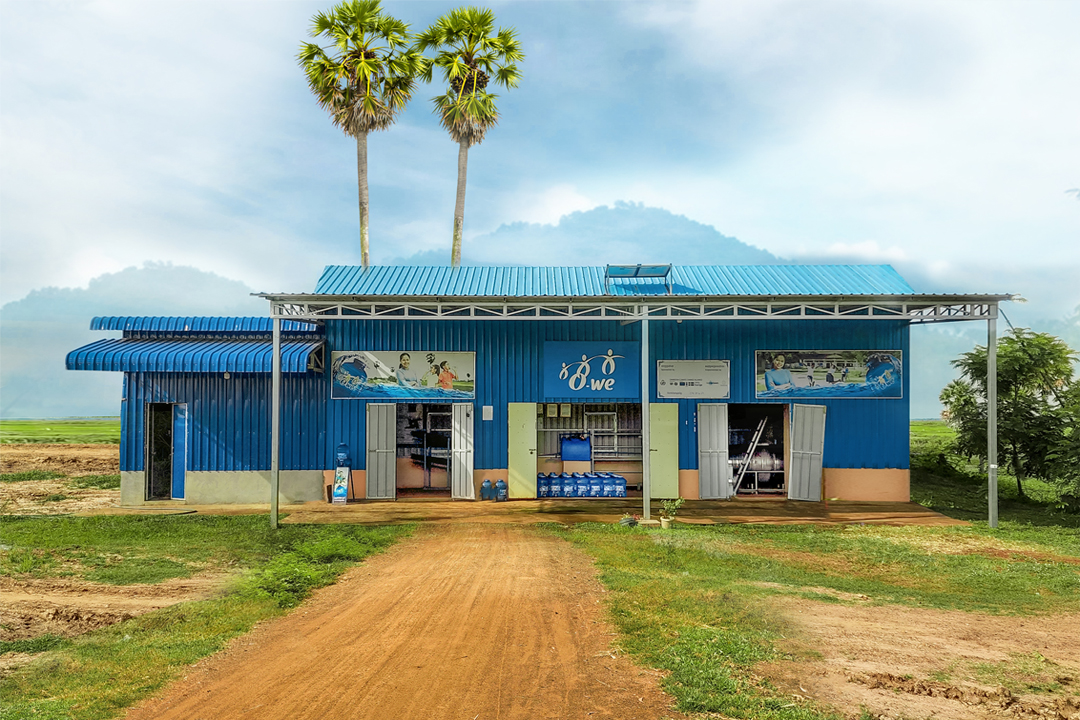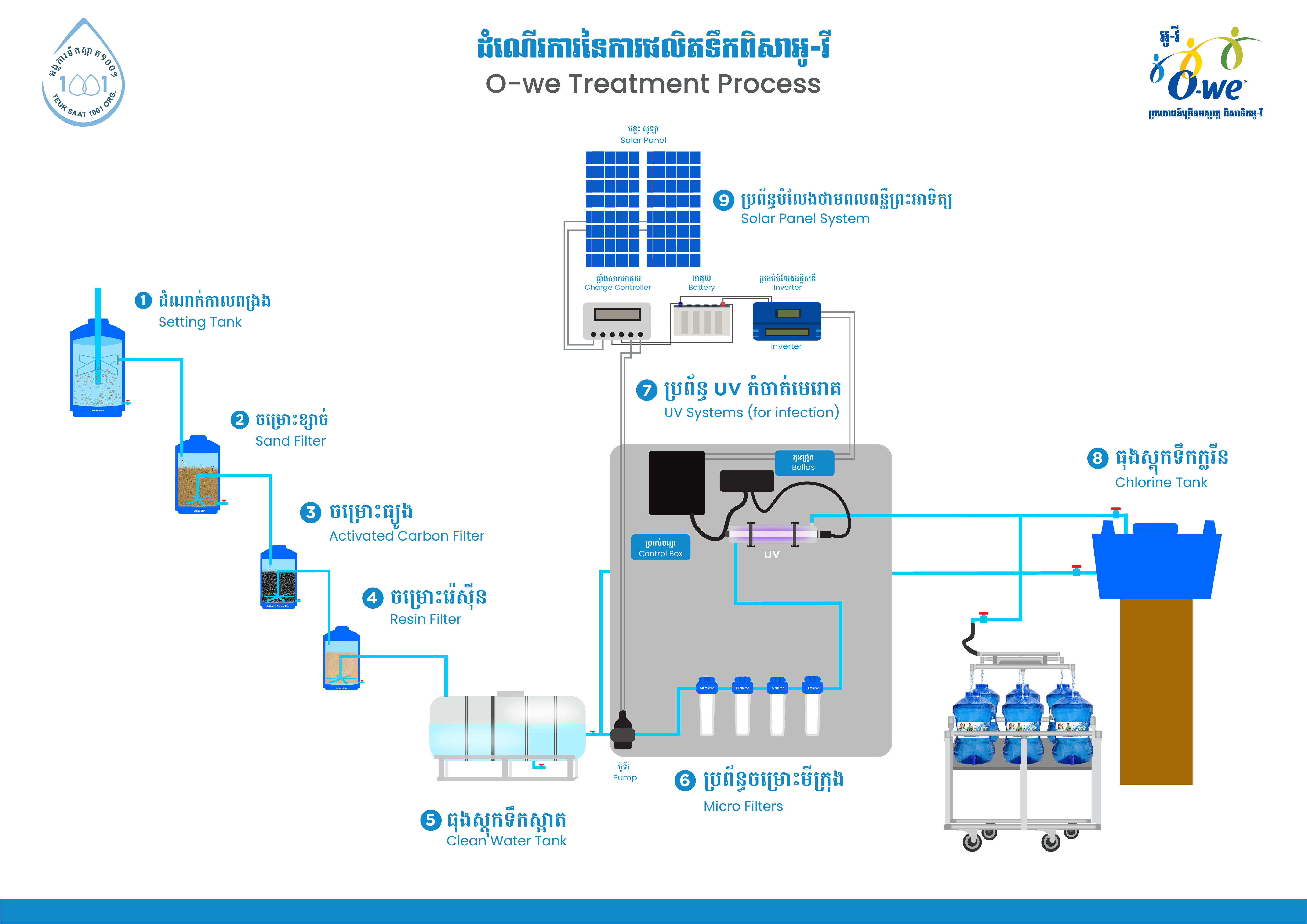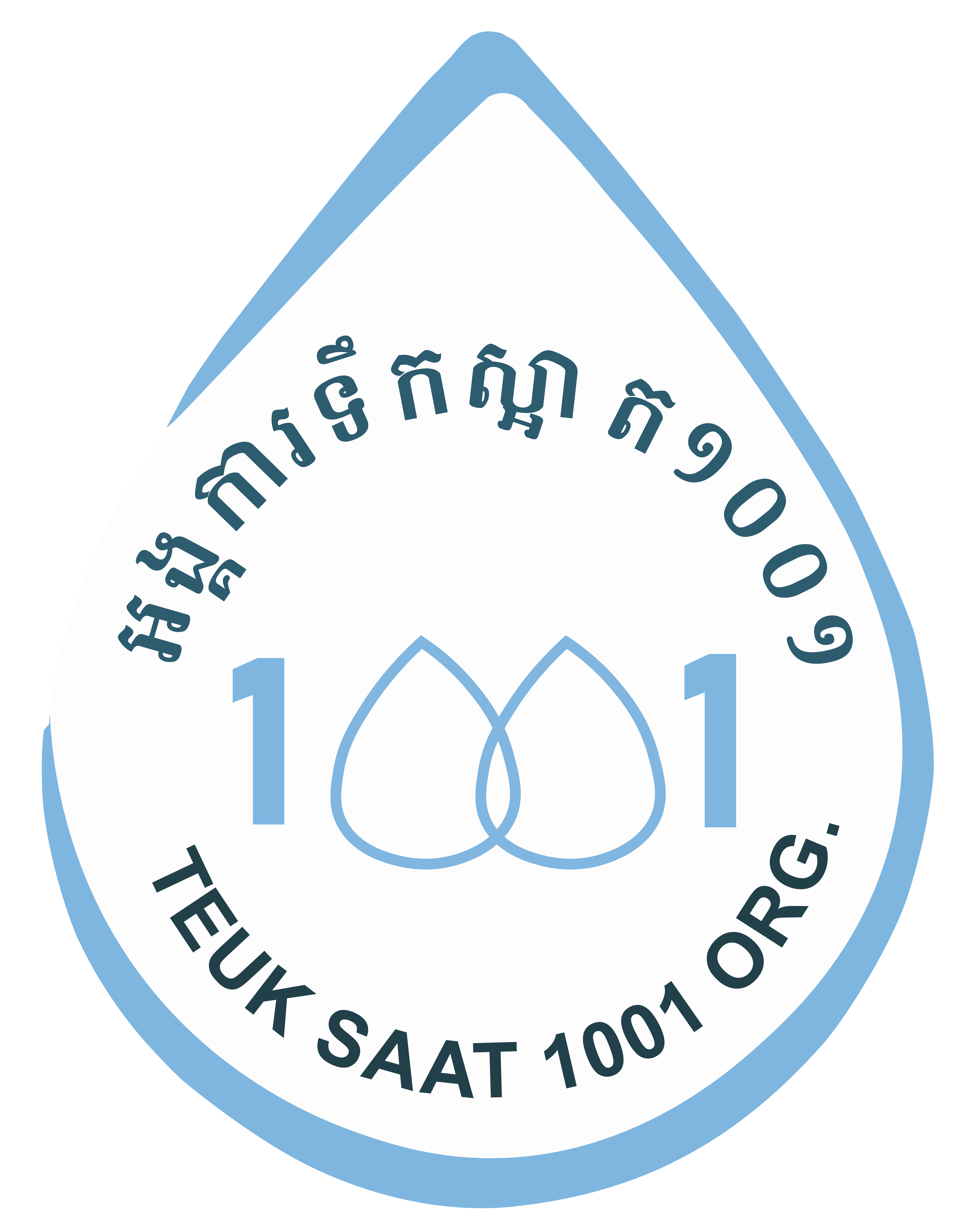OUR MODEL
Teuk Saat 1001 model is based on four pillars:
- Business model: ensure daily production and delivery.
- Affordability: a solution suitable for all budgets (<3% of household income).
- Accessibility: door-to-door delivery of 20L bottles to ensure the best service to our beneficiaries.
- Quality: monthly water monitoring to ensure the long-term quality

Based on these four pillars, we are offering 3 solutions:
- Supporting the installation of water kiosks in rural communities.
- Supporting entrepreneurs to ensure sustainable access to drinking water.
- Providing access to safe drinking water to all children in Cambodia through the Water in Schools program.
-
- 2006 Award for International Solidarity
- 2014 visit of Professor Muhammad Yunus – ambassador of Teuk Saat 1001
- Google Impact Challenge 2015
- The United Nations Framework Convention on Climate Change (UNFCCC)
- 2017 Asian Social Entrepreneur of the year
OUR WATER KIOSKS
With its strong hygiene, bottle cleaning, packaging and storage procedures, Teuk Saat 1001 is meeting the norms and standards of the World Health Organization. Concretely, within a water kiosk, thanks to a pump and a piped water system, surface or underground water is collected, stored in a tank, poured into filters (sand filter, filter carbon, micro filter) and finally disinfected using a UV lamp. This process eliminates all bacteria to produce clean water of consistent quality. The water is then poured into 20-liter bottles and ready for consumption.
Innovation is part of the Teuk Saat 1001 strategy
Year after year, our team continually works to improve the production, delivery and distribution systems of water kiosks.
Our priorities today are:
Ergonomics: reduce hardness and accelerate water production.
Water quality: make the treatment system more adaptable to local water sources, ensuring taste and quality over time.
Connectivity: integrate sensors to monitor production in real time and anticipate key maintenance interventions.
Delivery: upgrade the vehicle to facilitate longer journeys and position O-we as a premium brand differentiated from competitors.

